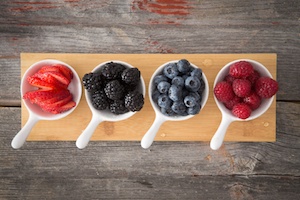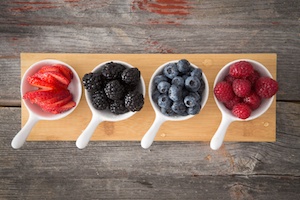We are experiencing a very high volume of calls and messages and ask for your patience. We will answer your portal messages within 48 hours.
We are experiencing a very high volume of calls and messages and ask for your patience. We will answer your portal messages within 48 hours.

 For those who have had trouble getting pregnant, once pregnancy is achieved it's important to do everything possible to improve embryo quality to maximize the chances of a successful outcome.
For those who have had trouble getting pregnant, once pregnancy is achieved it's important to do everything possible to improve embryo quality to maximize the chances of a successful outcome.
A recent publication from a group of researchers at the University of Melbourne, Australia—Truong, et al.— showed that antioxidants improved embryo quality and fetal development in mice. The study adds to the conversation about fertility and antioxidants and why, if you're trying to get pregnant, it may be a good idea to include antioxidants in your fertility diet.
The researchers studied the addition of three anti-oxidants (acetyl-L-carnitine, N-acetyl-L-cysteine and alpha lipoic acid) to embryo culture media. Time-lapse imaging assessed embryo development. They also studied the effect of varying concentrations of oxygen (5% vs. 20%) and embryo development when embryos were cultured individually or in groups.
Anti-oxidants significantly improved embryos development especially when all three were used in combination. The beneficial effects of combining the antioxidants were greater for embryos cultured individually as opposed to in groups of 10 and for those cultured in 20% compared to 5% oxygen.
According to the authors, one of the most characterized components of embryo culture systems and a documented source of stress to the embryo is oxygen. In the body, fertilization and embryo development occurs at low oxygen tension of around 2 – 8%. Low oxygen concentration (typically 5%) is optimal for embryo development in the embryology laboratory.
Atmospheric oxygen (20%) is bad for embryo development. It negatively impacts gene expression, induces DNA damage and disturbs their metabolism. Oxygen also can compromise embryo development through formation of reactive oxygen species (ROS). ROS damage embryo structure (cell membrane and DNA) leading to defective and delayed embryo growth and development.
Addition of these three anti-oxidants (each of which acts in a specific way) to the culture media protected the embryos from ROS and resulted in better quality embryos!
Human studies need to be done to confirm these data. IVF pregnancy rates have increased significantly in the past few years. With further improvements in culture media, we can expect them to increase even further.
At InVia Fertility Specialists, we have been liberally prescribing anti-oxidants to our patients. These include CoQ10 and its metabolite Ubequenol. There have been blogs psoted with information regarding foods that are rich in anti-oxidants (e,g, berries and nuts). Do oral anti-oxidants result in improved IVF outcome? That still remains an unanswered question.
To see a fertility specialist who is a board-certified physician with excellent success rates, make an appointment at one of InVia’s four Chicago area fertility clinics.

Entire Website © 2003 - 2020
Karande and Associates d/b/a InVia
Fertility Specialists
